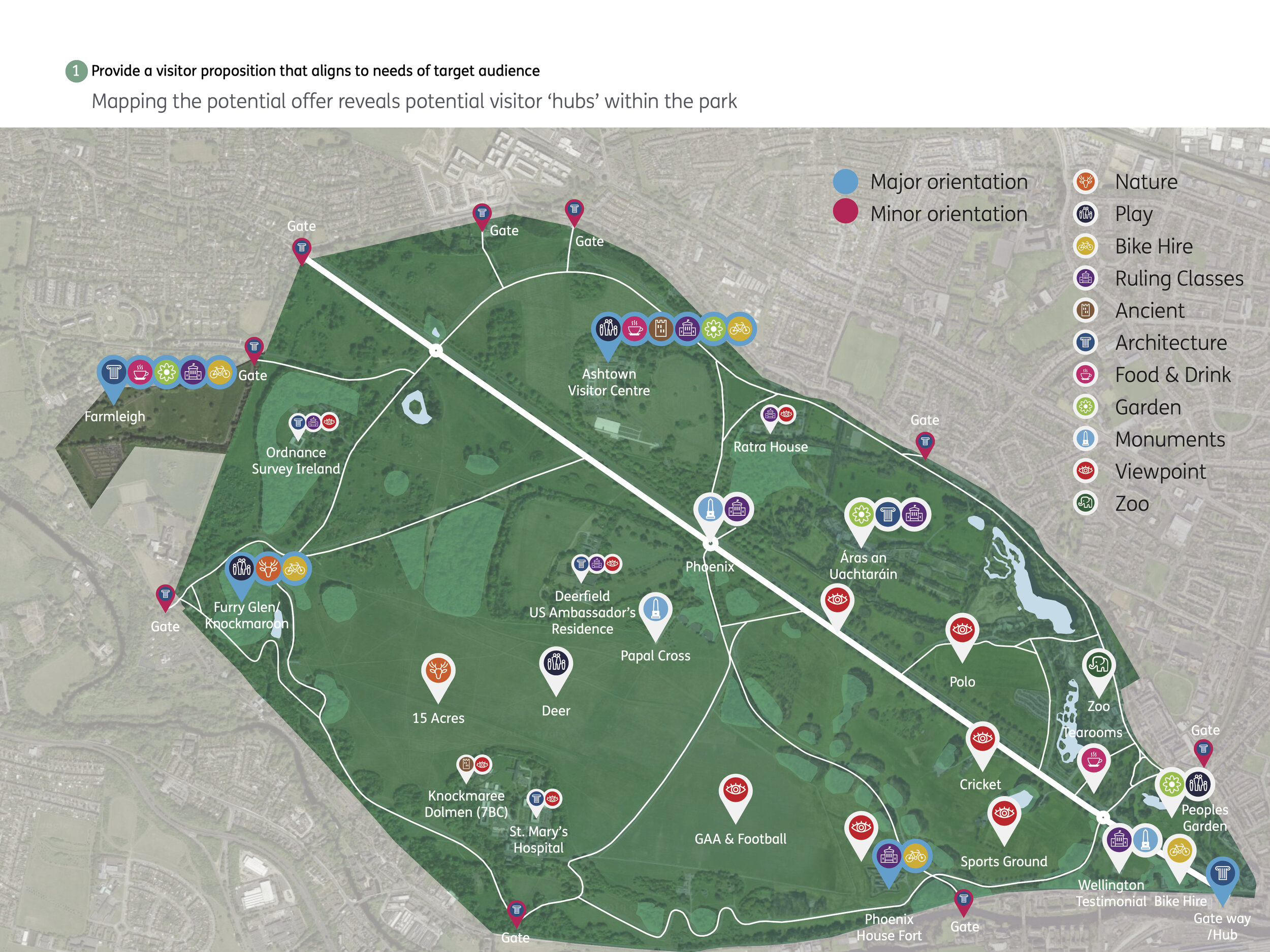“The outcomes showed a strong rationale for using interpretation to improve and enhance the visitor experience.”
Phoenix Park, Dublin is one
of the largest, enclosed recreational spaces in Europe encompassing a number of attractions and hidden historical features.
Tandem joined with Denis Byrne Architects, as part of a multi-disciplinary Design Team, to develop proposals for a Visitor Experience Master Plan and detailed scheme designs for a new visitor hub and Magazine Fort experience.
Guided by a Phoenix Park Conservation Plan our interpretation planning and design team worked with architects, archaeologists and conservationists to realise the potential offering for existing and future visitors to the Park. Working through RIBA Stages 1–3, the Visitor Experience Master Plan involved:
Reviewing and consolidating
all existing plans and researchAudience profiling
Benchmarking
SWOT analysis
Highlighting future development ideas
Establishing a logical sequence of works
All considered within the context of the Dublin Brand Strategy and Dublin Tourism Alliance Progress and Action Plan. Stage 1 also involved developing an Interpretation & Audience Engagement Strategy that rationalised a visitor-centric approach to enhance and develop audiences, an education programmes, both guided and unguided experiences, and a clear thematic approach.
Stage 2 Concept designs were focused on the delivery of a creative vision and approach including different levels of technology illustrated through proposed layouts and display approaches.
Tandem’s interpretive design team proposed a distinctive visual identity across the park and within the visitor hub. A graphic language was proposed to create highly visible and accessible aids for visitors along with a complementary mapping scheme and a ‘layered’ approach to wayfinding.
Interpretation of the 18th century Magazine Fort focused on an offering that would compliment other military visitor attractions within walking distance. Tandem revised the approach to exploring the Fort’s history: a unique heritage experience shows living conservation in action, with interpretation that encourages open conversations about heritage and protection within the unique story of the site.
The outcomes showed a strong rationale for using interpretation to improve and enhance the visitor experience, opening up previously closed areas and routes within Phoenix Park.
Importantly, the interpretation proposed would not contrast with the natural beauty and aesthetic of the historical Park but would integrate within existing routes, blending with the infrastructure and espousing the same historical values which make the Park so special.

